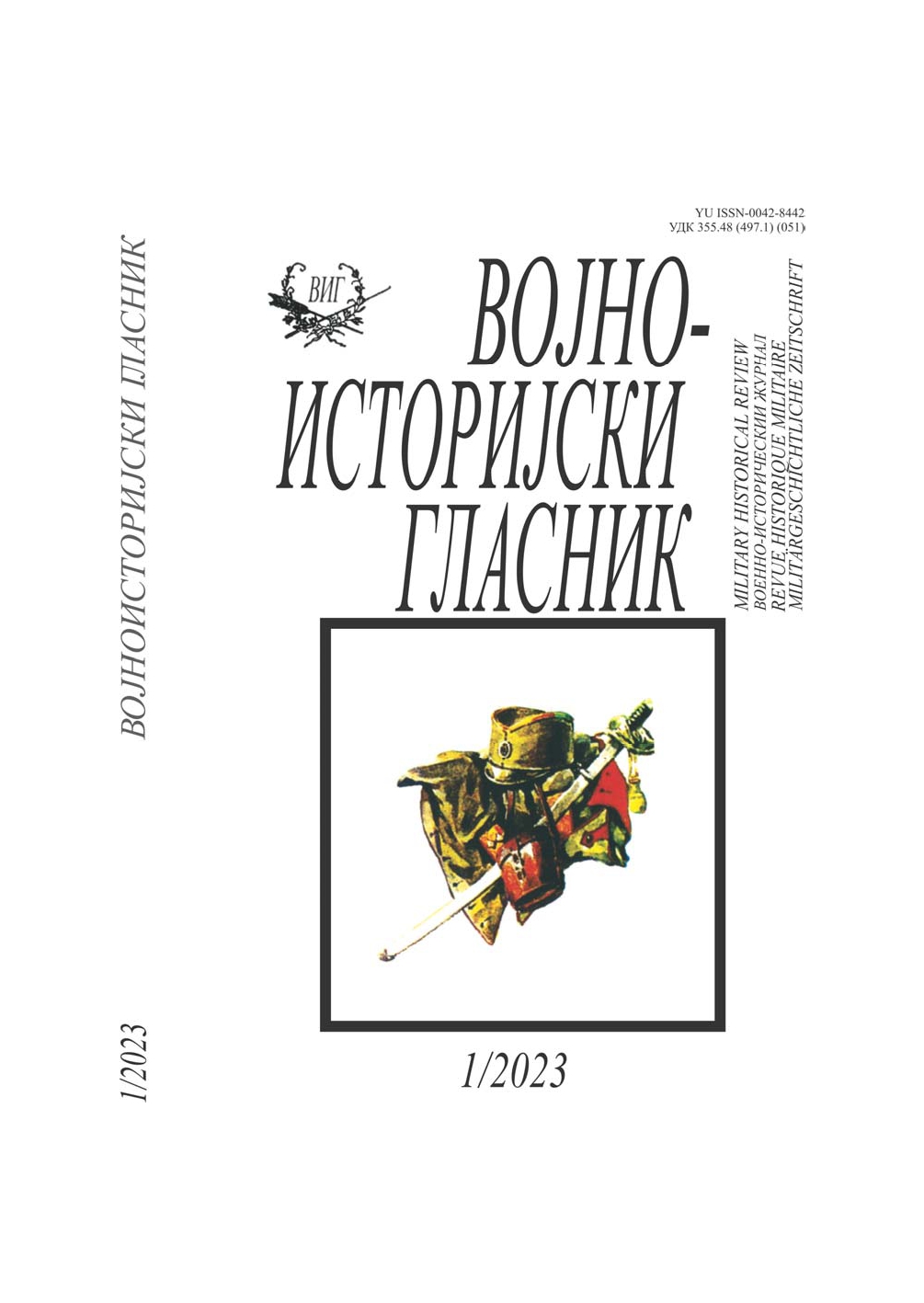ПРЕДЛОГ МИРНОДОПСКЕ ОРГАНИЗАЦИЈЕ ЈУГОСЛОВЕНСКЕ ВОЈНЕ ОБАВЕШТАЈНЕ СЛУЖБЕ ИЗ АПРИЛА 1945. ГОДИНЕ
THE PROPOSAL OF A PEACETIME ORGANIZATION OF THE YUGOSLAV MILITARY INTELLIGENCE FROM APRIL 1945
Author(s): Aleksandar ŽivotićSubject(s): History, Military history, Recent History (1900 till today), WW II and following years (1940 - 1949)
Published by: Institut za strategijska istraživanja
Keywords: Yugoslavia; World War II; General Staff; military intelligence; Soviet Union; personnel; education; agency work; reconnaissance; military attachés
Summary/Abstract: In the last days of the Second World War, in the moments when the final operations for the liberation of Yugoslavia were coming to an end, and the outlines of the future Cold War and post‐war alliances were becoming clearer, the need to establish a peacetime armed force was imposed in front of the Yugoslav General Staff. An important segment in the establishment of the future armed forces was the organization and work methods of the military intelligence service. Previous war experiences, mostly based on the legacy of guerrilla military operations conducted by the partisan movement during the liberation and civil wars, could only be partially used in the process of peacetime formation of the military intelligence service. That is why it was necessary to create a new model that involved relying on national experiences, primarily the intelligence services of the Army of the Kingdom of Yugoslavia in the period immediately preceding the outbreak of the Second World War and the experience of the allied armies, especially the Soviet Red Army in the war conflict that was coming to an end. The study on the organization of the postwar military intelligence service with emphasis on the organization, scope of work and personnel of the Intelligence Department of the General Staff of the Yugoslav Army was prepared by Colonel Frane Biočić. Colonel Biočić’s report contained the burden of the ideological and geopolitical environment in which it was written. Written near the end of the war in the conditions of the absolute triumph of the partisan movement under the leadership of the communists over the occupying, Quisling and rival anti‐fascist forces in the liberation and civil war, it contained the undisguised glorification of the partisan war heritage, as well as the negation of the value of the experiences of the pre‐war Yugoslav intelligence service, whose professional value was not only denied, but was already declared absolutely unusable due to open accusations against the professionalism and patriotism of its officers and associates. On the other hand, absolutely in accordance with the policy of close wartime alliance with the Red Army and projected post‐war cooperation, harmonization with the Soviet intelligence model was forced, reliance on the Soviet war experiences, the Soviet assistance in training and education of intelligence personnel was requested, and close cooperation along military intelligence lines was planned between the Yugoslav and Soviet General Staff.
Journal: Vojnoistorijski glasnik
- Issue Year: 2023
- Issue No: 1
- Page Range: 133-148
- Page Count: 16
- Language: Serbian

